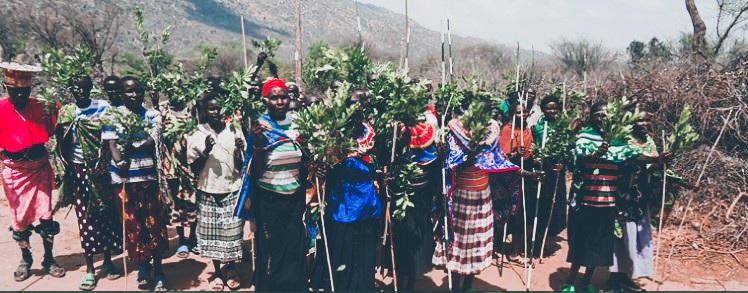Cultural and traditional beliefs continue to contribute significantly to the widespread practice of Female Genital Mutilation (FGM) in Kenya.
However, Kenya’s legislative ban on FGM has contributed to a decline of more than half from 1998.
In a new survey, the Kenya National Bureau of Statistics (KNBS) has shown that the prevalence of FGM declined from 38 per cent in 1998 to 15 per cent in 2022.
Kenya Demographic and Health Survey (KDHS) further shows that there has been a steady decline since 2014. The percentage of circumcised women who were cut and had flesh removed declined from 87 per cent to 70 per cent.
These stats show that Kenya is far from rooting out this complex issue deeply embedded in cultural, religious, and social beliefs.
Despite the efforts by the government and various non-government organisations to end the practice, FGM remains prevalent in Kenya, particularly in rural areas. The belief that FGM is essential to cultural identity and tradition is a major barrier to ending the practice.
A worrying trend has emerged; the survey indicated that FGM prevalence increases with age, with nine per cent of women aged 15-19 years having been circumcised compared to 23 per cent of women aged 45-49 years having been circumcised.
The findings also show that FGM prevalence was 15 per cent in 2022. About 70 per cent of women circumcised in 2022 had their genitals cut and their flesh removed. On the other hand, 9 per cent of these women were mutilated by having their privates sewn closed.
The government of Kenya has taken a strong stance against FGM. It was criminalised in Kenya in 2011 under the Prohibition of Female Genital Mutilation Act and the Children’s Act 2022.
The 2011 act criminalises offences including aiding or abetting FGM, possessing tools to carry out the practice, and failing to report a person carrying out FGM.
The law stipulates a prison sentence of not less than three years or a fine of 200,000 shillings or both for the crimes. A person who causes the death of a girl through FGM can be sentenced to life imprisonment.
Further initiatives by the government include the Sessional Paper No.3 of 2019 on the National Policy for the Eradication of Female Genital Mutilation and the National Policy on Gender-Based Violence 2019 guide on regulating FGM in the country.
Similarly, the government has also launched various initiatives to educate the public and raise awareness about the dangers and consequences of FGM.
Through the Joint Programme on Ending FGM, United Nations Population Fund (UNFPA) and United Nations Children’s Fund (UNICEF) provided financial and technical support to the Ministry of Public Service and Gender to help implement the Presidential Costed Action Plan to End FGM in Kenya by 2022.
In addition, the programme aimed at providing girls and women with access to suitable care while mobilising communities to transform the social norms that uphold the practice.
Furthermore, the government also has an ANTI-FGM Board. This semi-autonomous government agency was established in December 2013 following the enactment of the Prohibition of Female Genital Mutilation Act, 2011, in the Ministry of Public Service and Gender.
The board brings the youth together to spearhead anti-FGM campaigns across their counties.
Various Non-Governmental Organisations (NGOs) such as Amnesty International and African Women’s Development and Communication Network (FEMNET) are actively working to end FGM in Kenya.
Their efforts include working with communities to raise awareness of the harm caused by FGM and promoting alternative, non-violent forms of initiation and cultural expression. They also provide medical and psycho-social support to survivors and advocate for policy change and enforcement of laws against FGM.
‘Marital Status’ Most Common Platform for Gender-Based Violence
Overall, while there is still much work to be done, the attitudes of communities in Kenya towards FGM are slowly changing as more people become aware of its harm and embrace alternative cultural practices.
This fully realises how FGM continues to pose significant health and social challenges for women and girls in Kenya. It has led to significant physical and psychological consequences for women and girls.
These health complications include infections, bleeding, scarring, difficulty with urination and menstruation, and decreased sexual pleasure. In some cases, it can also result in severe complications during childbirth, leading to maternal and infant mortality.
Victims of FGM may also experience psychological problems such as anxiety, depression, low self-esteem, and post-traumatic stress disorder.
Also, the stigma surrounding FGM can make it difficult for women and girls to seek help, as they may fear being ostracised or criticised by their communities.
This has further been worsened by difficulties accessing medical care and support services, particularly in rural areas with limited healthcare infrastructure.
Additionally, many healthcare providers lack the training and resources to provide adequate care for women and girls who have undergone FGM, further complicating access to medical care.
To this end, a lot must be done at the community level to tackle age-old beliefs and traditions that harm children and limit their potential.
The government and other organisations should also ramp up their education and awareness campaigns to educate communities about the harmful effects of FGM and the consequences of its practice. While at it, healthcare providers should be trained to recognise and manage the health consequences of FGM and provide appropriate care to affected women and girls.
Women and girls should be empowered to reject FGM and advocate for their rights through education, skills training, and access to information and resources.
At the community level, religious leaders, traditional birth attendants, and community leaders should be engaged to promote alternative practices that do not harm women and girls. This will go a long way in helping solve the issue of FGM in Kenya.




